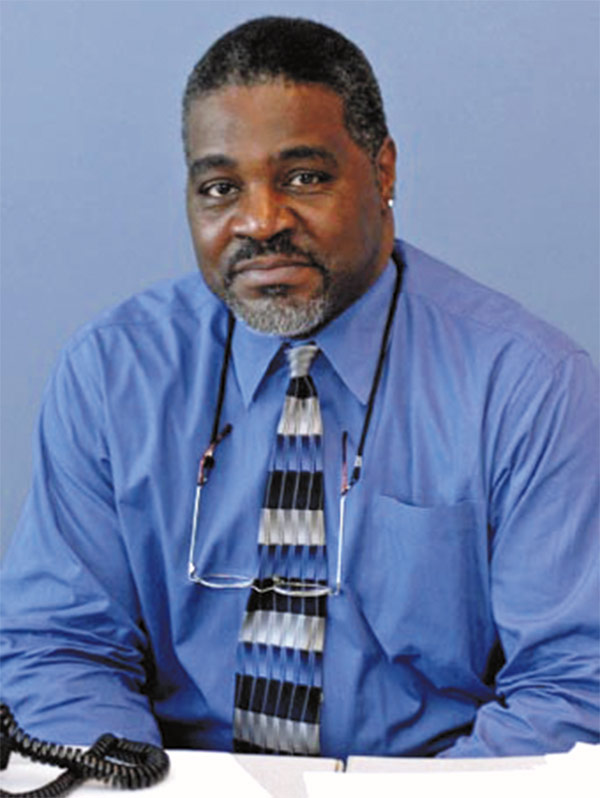Harvey Adams leaned over to me and said, “Young man, just keep watching them (politicians). That’s your job. Keep shining that light on them.”
We were on the set of “Eddie’s Digest,” the news and public affairs show that was featured on channel 22 a few years ago. Harvey was a regular, and as a columnist I had just become one. I was the youngster on the show, and the other panelists—Harvey, Rod Doss, Earl Hord, Doris Carson Williams, Esther Bush, and host Eddie Edwards—were must-see TV.
| LOU RANSOM |
While there was no “star” of the show, I knew that Harvey was at least a featured player. Always combative, contrary and outspoken, Harvey didn’t mind sharing his opinion, and he had a lot to share.
Those weekly get-togethers were always learning experiences. I was always amazed at how much information we were able to get out in those 60 minutes (minus commercial breaks), and even more amazed at how quickly they went by.
But I gained a lot of respect for my co-panelists, and especially for Harvey.
He spent 16 years as the president of the Pittsburgh Branch of the NAACP. He won the post in 1976, just when I returned to town after four years in the Navy. He was there when Renaissance Two was threatening to become Renaissance Not You, and he was right up there demanding that if Pittsburgh was going to change again, Black people were going to be involved.
His civil rights work, which had him going jaw to jaw with those “politicians” he warned me about, made him most proud, and if you prodded him (which I did), he’d talk about the marches, the sit-ins, the heated meetings where his “negotiating” skills (some would call them out-and-out threats) would gain some measure of positive outcome for the region’s minority communities.
Harvey didn’t mind taking on anyone. Governor, mayor, councilman or business leader, Harvey was going to be heard, because he truly felt that he was speaking for those Black people who never got in a governor’s office, never got to talk to the mayor, never were heard in council chambers, and were never even thought of in corporate boardrooms. He spoke up, and he was loud. He spoke up, and he was forceful. He spoke up, and people listened.
He would light into anyone, and I mean anyone, who he felt was not serving the best interests of the Black community, Black or White.
But Harvey was also a Pittsburgh cop for 23 years and a founder of The Guardians of Greater Pittsburgh. From all of what I’ve heard over the years, he was a really good cop, a beat cop, a cop who knew how to diffuse an explosive situation and get everyone home (or to jail) safely.
I heard about the threats against him. It takes a special kind of courage to lead a protest against police brutality WHILE you are on the force. That Blue Line is not very forgiving, but Harvey knew that he had to do the right thing, even if it wasn’t the right police thing.
Harvey suffered a stroke a few years ago, and it took a lot out of him. He wasn’t mobile anymore and that meant he couldn’t be in the thick of the battle anymore. When the battle raged over the slots casino, Harvey couldn’t weigh in. He couldn’t get to the meetings, he couldn’t get to the demonstrations and he couldn’t raise his voice. I missed his voice. I missed his gruff voice at a microphone telling anyone who would hear that the Black community would not stand for that kind of not-so benign neglect.
Not to say that I always agreed with him. Oh no! Harvey was as contrary as they came, and I thought sometimes he said things just to get me riled up. I disagreed with him often, sometimes vehemently (he would have liked that word) and sometimes said so in print. It made for lively get-togethers. We would agree to disagree (I’m strong-willed, too), and we’d move on to the next subject. I can disagree with friends.
He admitted to me that it wore on him, and he was often melancholy about his inability to walk on his own and how he now had to rely so much on his beautiful wife Shirley. I would tell him not to worry about it and just be grateful that he had someone to rely on—and a beautiful wife at that.
Harvey W. Adams Jr. was a civil rights giant in Pittsburgh. His kind of forcefulness, his power, has not been duplicated. Some say his type of civic agitation has become passé, as we have less overt racism. I disagree. We need that kind of agitation, that kind of leadership even more.
Maybe instead of a funeral march for Harvey, how about a protest march? Harvey would like that.
(Lou Ransom is executive editor of the Chicago Defender.)
